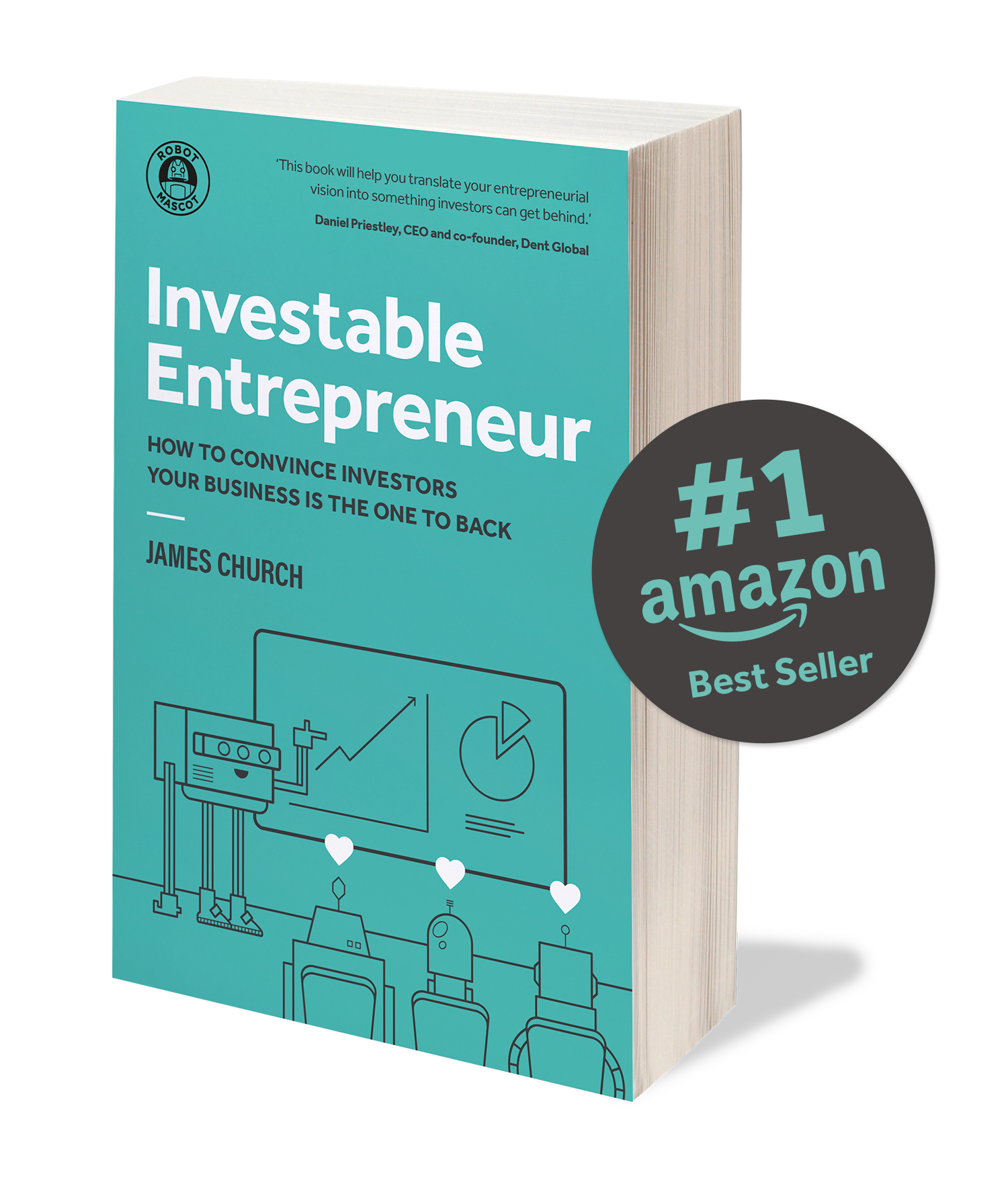

A Startup’s Guide to Finding Good Business Advisors
7th May 2023
Finding a good business advisor is critical for the success of a startup. Some of the reasons are obvious, some less so.
For example:
- Good business advisors bring a wealth of experience and knowledge to the table. They can provide valuable insights into best practices and proven strategies to help startups avoid costly mistakes and achieve their goals more efficiently.
- Business advisors often have extensive networks of contacts and can provide startups with access to resources they may not have otherwise. This can include connections to potential investors, industry experts, or other key stakeholders.
- Advisors can offer an objective perspective on a startup’s operations, finances, and growth plans. This can be especially valuable when startups are facing difficult decisions or challenges.
- A good business advisor can hold a startup accountable for meeting its goals and objectives and can provide support and encouragement along the way. This can help startups stay focused and motivated, even during challenging times.
When things go well, startups can really benefit from the guidance and support of a good business advisor. They can help the startup grow and succeed, achieve important milestones and build a solid foundation for long-term success.
However, when things go wrong, the consequences can be significant. A good business advisor can provide sound advice, save time and resources and even harm the startup’s reputation. This can set the startup back significantly and may even lead to failure.
Therefore, startups need to take the time to find a good business advisor who is experienced, knowledgeable and compatible with the business’s needs and goals. By doing so, startups can position themselves for success and avoid potential pitfalls along the way.
This article will help you understand what’s important and how to choose the right advisor for you and your business as you grow.
Understanding the Role of a Business Advisor
Before you start looking for a business advisor, it is essential to understand the role they play in your startup. A business advisor provides expert advice and guidance to startups, helping them navigate the business’s complexities. They offer a fresh perspective on your business, helping you identify potential problems and solutions. A business advisor can also provide you with a valuable network of contacts and resources.
Types of Business Advisors
There are different types of business advisors, including:
- Industry-specific advisors have specific industry knowledge and expertise and can advise on navigating the industry.
- Functional advisors have expertise in particular areas such as marketing, finance, or legal.
- General advisors have broad business knowledge and can advise on various issues.
Qualities of a Good Business Advisor
When looking for a business advisor, it is essential to look for someone who possesses the following qualities:
- Expertise and experience in your industry or functional area
- Strong communication and interpersonal skills
- Ability to provide objective and honest feedback
- Willingness to invest time and effort in your startup
- Ability to challenge your thinking and assumptions.
Define your business goals
First, you need to clearly define your goals and needs.
Identify the company’s mission and vision
Your mission statement should outline your company’s purpose and core values. The vision statement should articulate where the company aims to be in the future.
Conduct a SWOT analysis
A SWOT analysis is a tool used to identify the company’s strengths, weaknesses, opportunities and threats. This analysis can help identify areas where the company needs assistance and advice.
Create a business plan
A business plan should include an executive summary, company description, market analysis, service or product description, marketing and sales strategy and financial projections. A business plan is a comprehensive document that can help the company understand its goals, identify areas of weakness and determine where they require assistance and advice.
READ: Startup business plans: the 3 Cs you need to create the perfect plan
READ: Business plan for investment: why entrepreneurs without a proper business plan fail
Conduct market research
Market research involves gathering and analysing the company’s market data, including customer needs, competition and trends. This research can help the company understand its position in the market and identify areas where they require assistance and advice.
Seek feedback
Startups can seek feedback from customers, employees and stakeholders to identify areas where they need improvement, assistance, and advice.
Once the company has clearly defined its goals and needs, it can identify the areas where it requires business advice and assistance. For instance, if the company aims to expand its market share, it may need guidance and assistance in developing a marketing and sales strategy. Alternatively, if the company seeks to improve its financial performance, it may require advice and assistance in financial planning and management.
Sector experience
Sector knowledge and experience are important qualities to look for when searching for a business advisor because they can provide valuable insights and guidance for you and your business.
Why?
- Business advisors with sector knowledge and experience can provide you with a deep understanding of the challenges and opportunities specific to their industry. They can provide insights into trends, regulations, competition and other factors impacting a startup’s success.
- They can offer tailored advice and guidance specific to a startup’s industry. This can help startups avoid generic advice and instead focus on strategies and tactics most relevant to their industry.
- Advisors with specific sector knowledge are often more credible to investors, customers and other key stakeholders within the industry, which can help you build relationships and establish a strong reputation within their industry.
Find potential advisors by following these steps:
Identify your needs
You need to identify the specific areas where you require advice and assistance. This will help you narrow your search to advisors with experience in those areas.
Check credentials and references
You should check potential advisors’ credentials and references to ensure they have the qualifications and experience. You should also ask for testimonials or references from previous clients to gauge the advisor’s effectiveness and reputation. Read more about credentials and references below.
Ask for referrals
It can be wise to ask for referrals from their network of friends, colleagues, mentors and industry associations to ensure that your chosen advisor has a proven track record.
Check online directories
You might check online directories (LinkedIn, Wellfound/AngelList and Crunchbase) to find potential advisors. These directories allow you to filter by industry, location and expertise, making finding advisors with the right qualifications easier.
Attend events
Attend events and conferences in your industry or field to network with potential advisors and leverage the opportunity to meet advisors in person and learn more about their experience and expertise.
Use online forums
Startup founders can also use online forums, such as Quora and Reddit, to ask for advice and recommendations from industry experts and professionals – many of whom use this approach to meet startups. This can help you identify potential advisors and learn more about their experience and expertise.
Look for thought leaders
You could look for thought leaders – prominent people with podcasts or social media presences – in your industry or field and seek their advice, as they can be a valuable resource for startups, providing insights into the latest trends and developments in their industry.
Credentials and references
Checking the advisor’s credentials and references is essential in finding the right advisor for a startup. Founders should check the advisor’s credentials and references to ensure they have a track record of success. By doing your due diligence, your business can find an advisor with the right qualifications, experience and reputation to help them achieve their goals.
Here are some ways startups can check the advisor’s credentials and references to ensure they have a track record of success:
Check their qualifications
You should review the advisor’s qualifications, such as their academic degrees, certifications and licences. This information can be found on the advisor’s website, LinkedIn profile or other professional platforms.
Review their work history
Review the advisor’s work history to see if they have experience in the specific areas where the startup needs help. As with the point above, visit the advisor’s LinkedIn profile and company website.
Check for industry recognition
Check if the advisor has received any industry awards or recognition for their work – an indicator of their expertise and track record of success.
Ask for references
Ask potential advisors for references from their previous clients. This will provide valuable insights into the advisor’s effectiveness, communication skills and overall reputation.
Conduct background checks
You might even conduct background checks on potential advisors to ensure they have a clean record and no history of fraud or unethical behaviour.
Use online review platforms
You can use online review platforms, such as Yelp or Google Reviews or Glassdoor, to see what previous clients have said about the advisor. However, it’s essential to take these reviews with a pinch of salt and not rely solely on them.
Conduct an interview
Conduct an interview with potential advisors to get a sense of their communication style, approach to problem-solving and overall fit with the company culture.
Personality and communication style
Finding a business advisor who is a good fit in terms of personality and communication style is essential for the success of a startup. By considering the advisor’s communication style, shared values, personality and listening skills, startups can find an advisor who matches their needs well. It’s also important to seek feedback from others and consider a trial period to ensure the fit is right.
Here are some ways startups can find an advisor who is a good fit:
Consider the advisor’s communication style
Consider the advisor’s communication style and ensure it aligns with theirs. Do they prefer formal or informal communication? Are they comfortable with frequent check-ins, or do they like occasional updates? Finding an advisor who communicates in a way that works for the startup is important.
Look for shared values
Look for an advisor who shares their values and beliefs. This can help build a strong working relationship and ensure the advisor is invested in the startup’s success.
Seek out a compatible personality
Hunt for an advisor with a compatible personality. If the startup founders are outgoing and energetic, they may benefit from an advisor with a similar character. Alternatively, if the founders are more reserved, they may prefer an advisor with a more laid-back approach.
Look for a good listener
You should aim to find an advisor who is a good listener and takes the time to understand your goals and needs. This will ensure that your advice is tailored to your situation.
Seek out feedback from others
Seek feedback from others who have worked with the advisor before. This can provide valuable insights into the advisor’s personality, communication style and working habits.
READ: Why the wrong type of startup advisor will kill your chances of raising investment
Trial period
Asking for a trial period or a small project is an excellent way to gauge an advisor’s effectiveness and determine whether they are a good fit.
Why have a trial period?
Low-risk opportunity
A trial period or a small project provides a low-risk option for the startup and the advisor to work together and allows both parties to get a sense of each other’s working styles, communication styles and problem-solving approaches without making a long-term commitment.
Assess effectiveness
A trial will allow you to assess the advisor’s effectiveness in real-world situations. This will help you determine whether the advisor has the expertise and experience to help you achieve your goals.
Does the face fit
Trials help startups determine whether the advisor is a good personality fit – including communication style and overall approach. This is important for building a solid working relationship and ensuring the advisor invests in the company’s success.
Assessing your needs
A trial period or a small project allows the advisor to assess your business’ needs and determine whether they really can provide the necessary support. This can help the advisor tailor their advice and recommendations to the startup’s specific situation.
Building long-term relationships
A successful trial can also lead to a great long-term relationship between you and the advisor, which might facilitate ongoing support and guidance as your business grows and evolves.
Compensation structure
The compensation structure refers to how the advisor will be paid for their services and can include various options and help clarify the advisor’s own compensation structure. For example, you must ensure it aligns with the business’ budget and goals.
Here are some ways that startups can clarify the advisor’s compensation structure:
Determine the fee structure
Determine whether the advisor will be paid hourly, by project, or by retainer. Each structure has advantages and disadvantages, so it’s important to determine which works best for your business’ needs and budget.
Clarify the scope of work
Clarify the scope of work that the advisor will be responsible for, as this will ensure that the advisor’s compensation is aligned with the work.
Consider performance-based compensation
Consider performance-based compensation: where the advisor is paid based on the business’s success. This can be a great approach as it can incentivise the advisor to provide the best and most effective advice and guidance.
Negotiate the terms
Be prepared to negotiate the terms of the compensation structure, for example, payment schedule, milestones and termination clauses.
Consider the long-term relationship
Consider the long-term relationship with the advisor and how the compensation structure may change as the business grows and evolves.
Get everything in writing
Get everything in writing to avoid misunderstandings and ensure that both parties are on the same page. This includes the compensation structure (see above) and the scope of work.
Shares not cash
Rather than paying advisors cash, you might offer them shares in the company as a form of compensation. This has the benefit of aligning the interests of the advisor with the success of the company.
To ensure that the advisor is committed to the long-term success of the startup, it’s important to consider a vesting schedule. This schedule specifies that the advisor’s shares will be earned over time and/or when certain milestones or deliverables are met. This approach ensures that the advisor has a vested interest in the company’s success and is motivated to help the startup achieve its goals.
Find out more from SeedLegals.
Performance and feedback
Regularly reviewing the performance of a business advisor is essential for startups to ensure that they receive the best advice and support to meet their needs. By setting clear expectations, scheduling regular check-ins, using KPIs, providing feedback, and being open to change, startups can ensure that their advisor meets their needs and contributes to their success.
Here are some ways startups can work to regularly review the advisor’s performance and provide feedback:
Set clear expectations
Set clear expectations with their advisor from the outset, including what the advisor is expected to do, how often they should provide updates and the desired outcomes. Set expectations early on to establish a baseline for measuring your advisor’s performance.
Schedule regular check-ins
Schedule regular check-ins with their advisor to review their performance. Check-ins can be formal or informal and can include discussions of progress, challenges and future plans. Regular check-ins will also help the advisor understand the business’ evolving goals and needs.
Use key performance indicators (KPIs)
You should set and use KPIs to measure your advisor’s performance. These KPIs can be customised to your business’ specific needs and can include metrics such as revenue growth, customer acquisition and product development milestones. By regularly tracking these KPIs, startups can identify areas where the advisor excels or needs to improve.
Provide feedback
Provide regular feedback. This includes positive feedback when the advisor performs well and constructive criticism if improvements are needed. Make your feedback specific and actionable, and provide examples to help them understand how they can improve.
Be open to change
It may be challenging, but you should always be open to changing your advisor if necessary. If the advisor is not meeting your needs and expectations or is not providing effective advice and support, it may be time to find an alternative…
READ: 4 types of startup advisor your need (and those you don’t)
Getting investment
Many of you will be looking for business advisors to help you seek investment, and advisors can certainly help in a range of ways:
- Developing a solid business plan
- Identifying potential investors
- Preparing the pitch
- Negotiating deal terms
- Providing ongoing support.
Supporting founders to raise investment is our speciality. Why not book into a complementary Fundraising Strategy Session to learn more about our approach to convincing investors.
You can also claim a free copy of our bestselling book Investable Entrepreneur – which provides a complete roadmap to raising investment.
A Startup’s Guide to Finding Good Business Advisors
Investable Entrepreneur takes you through our winning methodology – the process we use to increase our client’s chances of raising investment by more than 30x.
“This book will help you translate your entrepreneurial vision into something investors can get behind.”
Daniel Priestley, CEO and founder, Dent Global and four times best-selling business author

Keep up to date with what we’re up to via email






Copyright ©Robot Mascot Ltd. All rights reserved.









